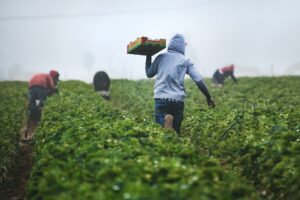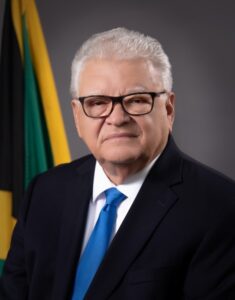Work-abroad agriculture programme gets positive rating from participants
KINGSTON, JAMAICA — A cohort of Jamaicans working abroad in Canada is said to be thriving under the Seasonal Agricultural Worker Programme (SAWP).

Seventy percent of participants were happy with their experience. (Photo by Tim Mossholder on Unsplash)
This comes after some of the workers allegedly reported concerns about the way they were being treated shortly after being assigned last year.
Following those complaints, the Jamaican government assigned a team to investigate, with the results coming back just recently.
According to a government statement on the matter, “The local independent fact-finding team appointed to assess the Seasonal Agricultural Worker Programme in Canada has found that most of the Jamaican employees are satisfied with their working and living conditions.”
The majority of workers surveyed, some 70 percent, felt their experience working abroad was either “good” or “very good.”
Work abroad opportunities for Caribbean citizens and residents

There are many work abroad opportunities for Caribbean workers. (Photo: geerati@gmail.com)
Programmes like SAWP are certainly not new to the Caribbean. Although, foreign companies have been seemingly recruiting in the region more often following the pandemic.
A unique combination of labour tensions, mass resignations, and more led countries like Canada, the United States and the United Kingdom to look to the Caribbean for talent.
“Work abroad opportunities are not limited to manual labour like farmers, butchers and housekeepers,” says Joseph Boll, Caribbean Employment Services Inc. CEO.
“Even high-in-demand positions like doctors and hospitality managers are being recruited, and most employers are also offering attractive relocation benefits and support.
“Jobseekers interested in working abroad can easily find these kinds of opportunities for free using resources like Caribbean Employment.”
Positive working conditions for Jamaicans
Meanwhile, Jamaican Minister of Labour Karl Samuda described the overall working conditions of the SAWP cohort as positive, albeit “not perfect.”

Jamaican Minister of Labour Karl Samuda.
Rather, he said the government is considering providing more eight-month contracts to workers.
According to the minister, most of the current workers are on contracts ranging from five to eight months, with fewer than 30 percent on contracts lasting a full eight months.
Further, most workers said they opted to take advantage of opportunities to work extra hours for additional income.
Most said they did not work when they were sick, and that they were happy with the living arrangements made for them as part of their relocation package.
“I am not saying that the place is perfect by [any] means,” said Samuda.
“I am not saying it’s a perfect situation.
“But the fact of the matter is, when asked specifically if the farm owners treated them with respect, 87.1 percent said yes.”
Find the latest jobs in the Caribbean via Caribbean Employment Services Inc.










